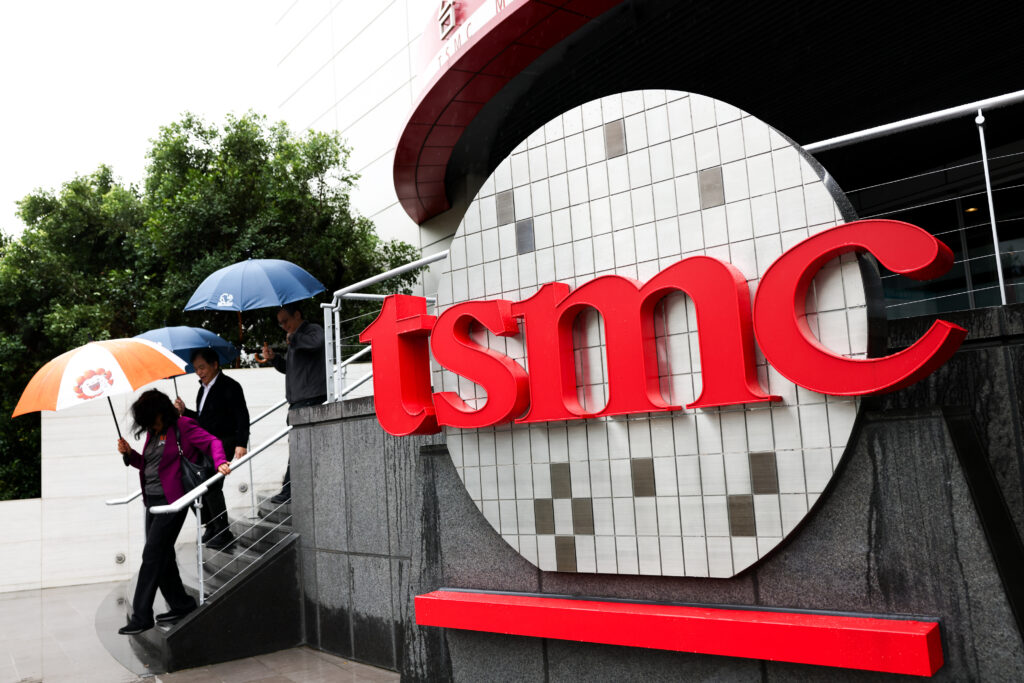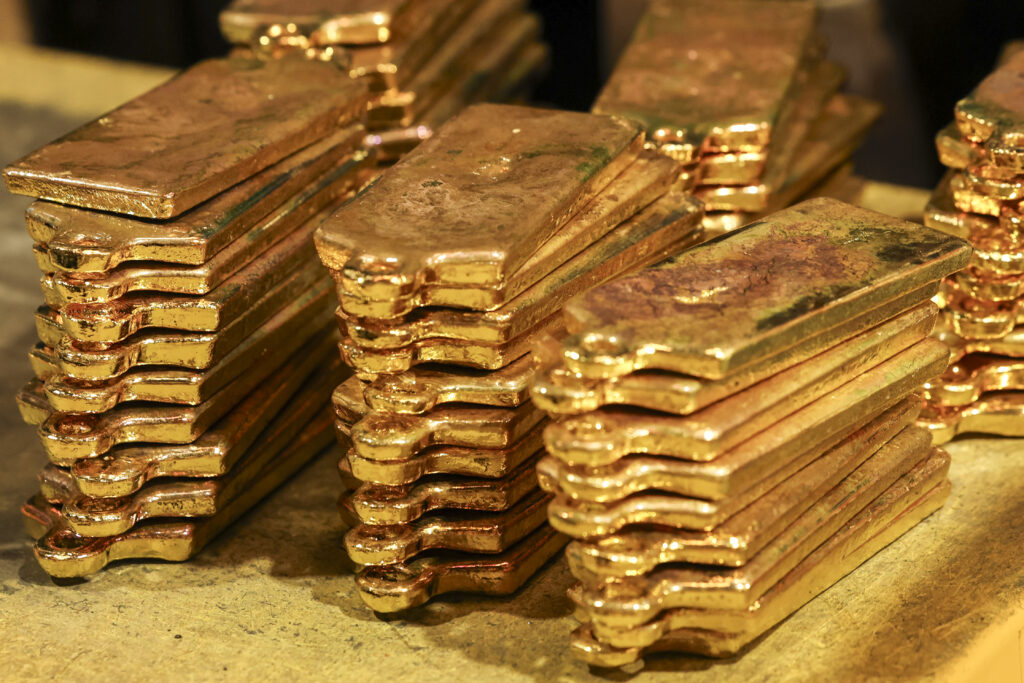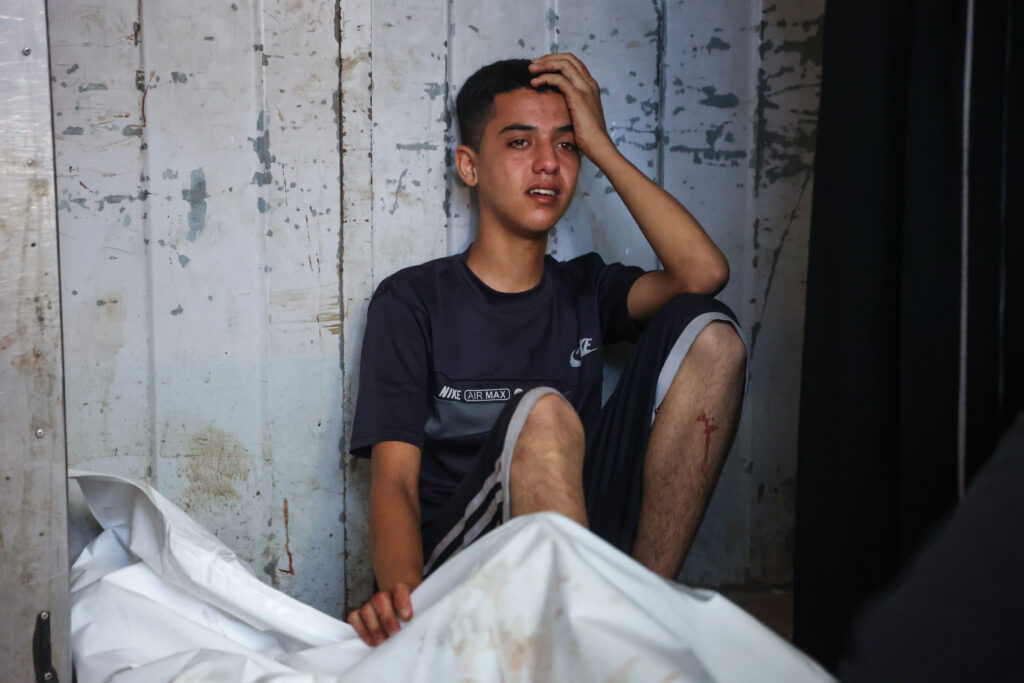AFP Asia Business
US limits TSMC chipmaking tool shipments to China
President Donald Trump’s administration has revoked Taiwanese semiconductor giant TSMC’s authorization to export US chipmaking equipment to China without a license, further restricting access to US technology in the country.The move comes as the US Commerce Department moved to end the “validated end-user” (VEU) program allowing select foreign semiconductor manufacturers to export US-origin goods and …
US limits TSMC chipmaking tool shipments to China Read More »
Gold hits high, stocks retreat as investors seek safety
Stock markets fell and gold hit a record high Tuesday as investors fled to safe havens over concerns about US President Donald Trump’s Federal Reserve fight, tariffs uncertainty and Europe’s public finances.Wall Street’s main indices spent the entire session in the red after investors returned from the Labor Day holiday, while European stock markets lost …
Gold hits high, stocks retreat as investors seek safety Read More »
Israel builds up forces ahead of Gaza City offensive
Israeli reservists began responding to call-up orders on Tuesday, swelling the military’s ranks ahead of a planned offensive to capture Gaza City after nearly two years of devastating war.Despite mounting pressure at home and abroad to end its campaign, Israel has recently been stepping up operations as it lays the groundwork for seizing the Palestinian territory’s largest urban centre.Gaza’s civil defence agency said Israeli forces killed at least 85 people on Tuesday across the Strip, which has been in the grips of a major humanitarian crisis for months.In Tel Aviv on Tuesday, a group of reservists refusing to serve in the war and calling themselves “Soldiers for the Hostages” held a public event urging their fellow reservists and active-duty soldiers not to report for service. Max Kresch, a member of the 400-strong group, said that as a veteran who had already served in the war, it was his “patriotic duty to refuse to take part”.Continuing the hostilities instead of striking a deal to free the hostages taken by Hamas, he added, was a “betrayal” of both the captives and the Israeli people.Israeli media has reported that around 40,000 reservists were being mobilised in the first wave.The UN estimates that nearly a million people live in and around Gaza City, where a famine has been declared.Army chief Eyal Zamir told reservists reporting for duty on Tuesday they were being deployed to “enhance the strikes of our operation”. The military has intensified its bombardment of Gaza City, and has been operating on its outskirts in recent days.”We are already entering places we have never entered before,” Zamir said.In his own message to the troops, Israeli Prime Minister Benjamin Netanyahu credited them with advancing “Israel towards a sweeping victory”, adding they were now at “the decisive stage”.- ‘Completely overcrowded’ -Weary Palestinians in Gaza City told AFP they felt helpless and desperate ahead of the looming offensive.”There is no place for us to go, and no means to get there. We are exhausted physically and mentally from displacement and from the war,” 60-year-old Amal Abdel-Aal, who lives in a tent in the city’s west, told AFP by telephone.In a post on X on Tuesday, a military spokesman warned Gazans of the upcoming “expansion of combat operations towards Gaza City”.”We wish to remind you that in Al-Mawasi enhanced services will be provided, with an emphasis on access to medical care, water and food,” Avichay Adraee said, referring to an area in the south that Israel has designated a humanitarian zone but which has been hit by repeated strikes.In mid-August, the UN human rights office said Palestinians in Al-Mawasi had “little or no access to essential services and supplies”.Khalil al-Madhoun, 37, who lives in a partially destroyed apartment in western Gaza City said he had travelled twice to the south looking for somewhere to pitch a tent but found no space.”The centre and the south are completely overcrowded,” he told AFP by telephone.Most of Gaza’s population of more than two million people has been displaced at least once during the war.-‘End the war’-Gaza’s civil defence agency said 10 people were killed in an Israeli air strike on a residential building in the southwest of Gaza City.AFP footage from the aftermath of the strike in the Tel al-Hawa neighbourhood showed Palestinians carrying a dead girl from the rubble of the top floor.”We were sleeping safely in our homes and suddenly we woke up to the sound of bombing and destruction and found most of our neighbours murdered and injured,” said Sanaa al-Dreimli.Contacted by AFP, the Israeli military requested precise timeframes and coordinates to look into the reports.Media restrictions in Gaza and difficulties in accessing many areas mean AFP is unable to independently verify the tolls and details provided by the civil defence agency or the Israeli military.Pressure is growing on Israel to halt its offensive, which it says is aimed at eradicating Hamas and freeing the hostages seized during the group’s October 2023 attack that sparked the war.Belgium on Tuesday became the latest Western country to say it would recognise the State of Palestine at the UN General Assembly this month following similar announcements by Australia, Canada and France.Hamas’s October 2023 attack on Israel resulted in the deaths of 1,219 people, mostly civilians, according to an AFP tally based on Israeli figures.Of the 251 hostages seized during the assault, 47 are still being held in Gaza, including 25 the military says are dead.Israel’s retaliatory offensive has killed at least 63,633 Palestinians, most of them civilians, according to figures from the health ministry in Hamas-run Gaza that the United Nations considers reliable.



